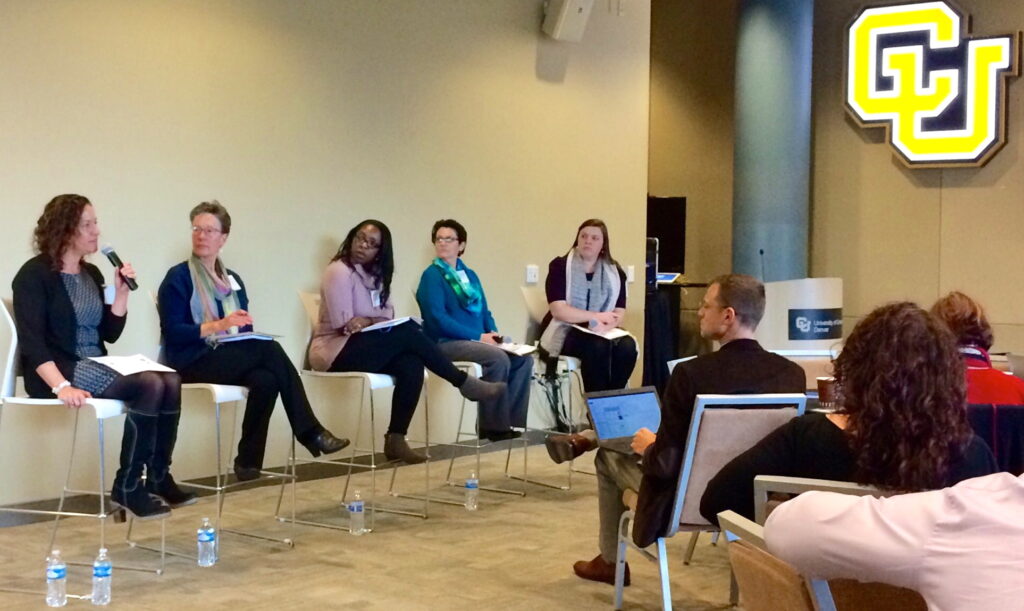A Quick Summary…
Established by the state legislature in 2016 with the support of Colorado Succeeds and partners, the Career Development Incentive Program (CDIP) is a state-funded program that incentivizes Colorado schools to provide industry-recognized credentials or work-based learning opportunities that help prepare high school students for employment in the state’s most in-demand industries. The program’s incentives, which provide up to $1,000 for every completed, pre-approved, industry-recognized program, can be used by school districts to expand certification offerings, buy technology to offer new certifications, cover transportation to work-based learning experiences, and equitably expand access to the program. Since 2016, the program has provided over $22 million in incentives.
Since 2016, Colorado students have earned more than 44,000 in-demand credentials.

In 2023, the program received bi-partisan support to invest in its continued success and increase funding to $9.5 million annually, for the next decade, resulting in an additional $95 million of investment to strengthen career-connected learning in our state.
The Problem We Were Seeing:
Widening Skills Gap Leaves Students Under-Prepared, Employers Struggling to Find Workers
Colorado’s learners consistently lack the skills and credentials they need to enter the labor force, particularly in the state’s most in-demand industries. 90% of jobs require credentials beyond a high school diploma, yet just 34% of Colorado high school graduates get a certificate, associate’s, or bachelor’s degree within six years.1

Leaders in government and education knew that something needed to be done to address the ever-widening talent development gaps, and better equip students to step into the workforce with a competitive, useful skill set.
Colorado Succeeds, working at the intersection of business, education, and government, was uniquely positioned to engage strategic partners, and architect a solution.
What Colorado Succeeds Did About It:
Incentivize Schools to Help Students Acquire Career-Relevant Credentials, Creating Upward Mobility and a Stronger Pathway to Employment
In 2016, Colorado Succeeds worked with our legislative and advocacy partners on groundbreaking legislation to create the Career Development Incentive Program (CDIP).
The program encourages students to obtain certificates that provide real-world experience and help them get in-demand jobs after graduating from high school. Schools receive a financial incentive for every certified credential their students receive. Businesses begin to see a stronger talent pipeline. It’s a solution that benefits learners, school districts and businesses. We call that a “win” for Colorado.
To help close the skills gap, an organization like Succeeds is necessary to bridge the distinct sectors. Ready to help spread our impact?


We are leading efforts to expand CDIP because the program has allowed us to create a unique public-private partnership helping address the construction industry’s talent shortages. Through our partnership with the Home Builders Association, we contribute private money to allow 48 high schools to offer the Home Builder Institute’s curriculum. Our high school partners use CDIP reimbursements to fund instructors, equipment, and lab space. The bottom-line result is that more than 500 graduates last year were part of our program, and 20% of them went on to work directly in industry jobs that make a living wage and a great career.
Michael Gifford, President and CEO, AGC Colorado
Our Role
CDIP’s success points to the unique role Colorado Succeeds occupies at the confluence of government, education, and business. By working across these three sectors, we harness our extensive relationships and expertise to forge public-private partnerships, draft impactful policies, guide implementation strategies, assess outcomes – and support policy and programmatic improvements in an ongoing way.
Notable CDIP Achievements:
Secured legislative support to ensure CDIP authorization and extension
Invited businesses and educators to the capitol to share firsthand experiences
Worked with top employers in CO to identify the most essential credentials for their incoming workforce
Ensured that districts across the state understood CDIP and could access it for their students
Measured and reported on CDIP’s successes
Received and evaluated program feedback to make policy adjustments and ensure successful implementation
How CDIP Works
Schools receive up to $1,000 in incentives each time a student completes an industry certification linked to high-demand jobs. Incentives are also provided when students finish a postsecondary internship, residency, or apprenticeship program tied to key industry needs, or successfully complete an AP computer science course. Credentials are identified based on feedback and guidance from businesses working in the state’s most in-demand industries.

How Learners Win:
Students earn industry credentials in high-demand fields, and leave schools more prepared for postsecondary and career success.

How Schools Win:
Incentive revenue helps expand certification offerings, cover transportation to offsite learning experiences, and cover exam fees for students unable to pay.

How Businesses Win:
Businesses see quality, home-grown job applicants who have the certifications they need to enter directly into related jobs.
What happened?
CDIP is Improving Outcomes for Learners, Schools & Business at Scale
50% of participating school districts are rural (2021-22 school year)
40% of participating students are BIPOC (2022-23 school year)
$95 million invested to transform high-school career-connected learning over next decade


CDIP has been an incredible resource for the Holyoke School District–the program is a major asset in connecting our students to locally needed job certifications. We’re thankful that Colorado Succeeds was such a champion for this year’s bill so that we’ll have more funding that can be reinvested into our students’ futures and so that more districts can offer this valuable program to its students.
Summer Kreider, Holyoke School District, Jr/Sr Counselor
See CDIP In Action
Coalition-Building to Improve Outcomes
Colorado Succeeds engaged a broad coalition of partners to conceive and bridge CDIP from policy and advocacy to implementation and impact measurement.
- Source: https://www.cpr.org/2022/10/04/colorado-technology-jobs-certificates-apprenticeships/
Additional CDIP Resources
Discover more about CDIP’s history, policy evolution, and game-changing impact in Colorado
Partner with Colorado Succeeds
Is your company or business organization committed to improving education and workforce development outcomes in the state? Leverage the influence of your brand, and join us.













